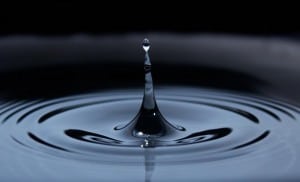 The 6th Africa Water Week (AWW6) was recently held in Dar es Salam, Tanzania, and among various items discussed was the need for more funding to achieve the Water & Sanitation SDGs.
The 6th Africa Water Week (AWW6) was recently held in Dar es Salam, Tanzania, and among various items discussed was the need for more funding to achieve the Water & Sanitation SDGs.
The African Development Bank (AfDB) warned that water and sanitation will remain one of the central development challenges facing African nations, and will directly impact economic growth.
Africa is one of the few developing regions which have still not met the drinking water and sanitation targets. In excess of 50% of Africa’s population still does not have access to potable, reliable water and hygienic sanitation services. An estimated 1 million Africans, mostly children, die annually from lack of adequate sanitation, inadequate hygiene and from water-borne diseases.
Mohamed El Azizi, AfDB’s Water and Sanitation Director, said that the AfDB is in a unique position to help African countries better cope with water and sanitation challenges as, “We have track records in implementing water, sanitation and climate change resilience projects as well as a robust experience in managing dedicated trust funds and tools: the award-winning African Water Facility, the Rural Water Supply and Sanitation Initiative, Clim-Dev Africa, IPPF-NEPAD… African countries can really benefit from our experiences and lessons learnt.
El Azizi added that, Expanding access to clean water and better sanitation is a strategic priority for the AfDB. Overall, our projects created 116,000 m3 of drinking water capacity between 2013-2015, with more than 6.1 million people benefiting from improved access to water and sanitation as a result of our projects.” {Source: All Africa]
The AfDB and the African Water Facility (established by the African Ministers’ Council on Water and hosted by the AfDB) took part in a series of events wherein the main “game changers” and the policy shifts that are needed to reach the SDG6 endline to “Ensure access to water and sanitation for all” were identified. The talks were also aimed at translating the high-level commitments on water security and sanitation into implementation.
Participants also sought to develop a common understanding of financing requirements and policy design options necessary for the practical implementation of climate change resilience projects. Key design parameters for water infrastructure are hydrological information, which is sorely lacking in most African countries. According to Jean-Michel Ossete, Acting Coordinator, African Water Facility, a new program called Hydromet can affirm more accurate information for design in climate resilient infrastructure
Jochen Rudolph, water and sanitation expert, AfDB, stated; “To meet SDG6 targets in Africa, realistic and comprehensive financing plans are needed based on the costs of providing both hardware and software components as well as operations and maintenance to ensure services operate efficiently and sustainably.”
Buy water cooler and rent water cooler from Living-Water.





